Can you share with us your path into music? What sparked your interest in starting to rap and produce songs?
I was introduced to hip-hop through my older sister's boyfriend after I moved to New York, since she moved out there 2 years prior. I wasn't familiar with Japanese hip-hop until I visited my hometown in Gunma a couple years later for summer. There was a small record shop called “Halftime Records,” and one of the staff was a rapper. Basically, he invited me to the scene, and I just started rapping. It started organically, I would say.
Who are some of the people who have influenced you the most, both musically and personally, that have molded your artistic style?
Definitely my ex-wife in NY. She was a known underground rapper from Queens, NY. Just being around her family and her peers in the music scene helped me mold my style for sure. Since English isn't my first language, I couldn't win arguments with her, plus she's an ill wordsmith, so no way. Eventually, I started to win arguments, and that's when people started to connect with my music.
Japanese hip-hop is gaining more attention internationally. How do you view the growth of this genre within Japan, and what part do you believe you're playing in its development?
I think it's cool that the pie is getting bigger for the hip-hop culture in Japan, because I know so many players in the game struggled for the longest time building the scene. In contrast to the situation, I think it also has some bad influence on Japanese culture because the artists imitate the negative part of the hip-hop culture and get awarded for it. My role in its development: I think I helped the Japanese hip-hop scene be more bilingual friendly and made this scene adopt faster. About 15 years ago, when I came back from NY, the Japanese hip-hop scene was all about “NIHONGO RAP,” which means Japanese Rap. It was its own genre of hip-hop within hip-hop. People used to kind of dismiss my releases because my content was heavy in English/Japanese. They considered me as foreign rap or something. I paid no mind to it though.I just relentlessly released music until they gave up. There are a lot of people who only listen to non-Japanese hip-hop music because it's just sonically and musically far better than Japanese hip-hop at the time, and those listeners were more likely to listen to mine.
So, could you share a bit about how you go about making a new track? Do you usually kick things off with the beat, maybe the lyrics, or do you start from a particular idea?
I usually listen to beats, and when I come across a dope beat, it triggers me to write. But my main rule to create is to have no rules. I try every approach to keep my mind flexible for whatever inspiration I encounter.
What are some of the biggest hurdles you've faced while making music, and in what ways have you managed to get past them?
There are too many inspirations and too many beautiful talents in this world, and it's hard to ignore. Iʼm a slave to inspiration, so itʼs very hard to prioritize ideas sometimes. I'm 44 now and just recently started to catch a good rhythm and understand the right balance for myself to create the best results.
What was it like working in New York's music scene compared to that in Japan? Are there any significant differences (you've noticed) between their creative processes or musical cultures?
Artists in NY are the hungriest people I have ever met. Work ethic was almost sickening. They were always in studio hunting for a chance to create something great. Consistency was unbelievable. No matter what level the artists are, they are like “take what's mine kind of mind set. Never act like they are entitled to anything. I've learned a lot from that. In Japan, in contrast, it felt slow, and it made me feel very uncomfortable that a lot of artists who haven't made it at all were being comfortable in their stage of career. That was about 15 years ago anyway, so time has changed.Today in Japan, there are more competitions, and you just have to keep grinding in order to survive out here.
If given the chance to work with any artist̶whether theyʼre still around or not̶who would it be (and why)?
Donny Hathaway. He is my all-time favorite. He taught me English. He has saved me more than I can count. I know we are talking about hip-hop, but no rappers can come nowhere near my Sensei.
Your songs often bring up personal stories and social topics, which is pretty interesting. What are the key messages or ideas you feel super passionate about sharing through your tunes?
Also, how do you think your way of telling these stories has changed over time? Do you find it a bit easier to get certain feelings or tales across in Japanese compared to English, and if so, why do you think that is? As a Japanese artist, I'm just borrowing this culture to express myself. I have great respect for the culture, and I want to master the craft lyrically and musically. So, I shall not use it just to make money for myself. It's got to be about people. The money part of the game is getting ahead of ourselves. We haven't even mastered the music at all. I'm still struggling to get my messages throughout here in Japan. My music is still bilingual heavy. I don't feel the difference between Japanese and English when I write my feelings or thoughts. But Japanese is the first language for most Japanese people, so there is a big difference for Japanese listeners.
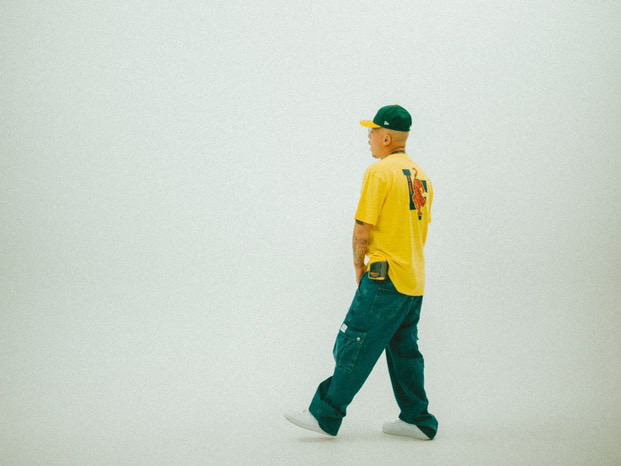
What would you say is the biggest misunderstanding people have about Japanese hip-hop or even just the music scene in Japan as a whole? In some respects, where do you see Japanese hip-hop going in the future, both at home and around the world? For example, what tips would you give new artists in Japan who are aiming to make it big on an international level (which can be quite challenging)?
I don't know what the specific problems people talk about are, so I can't really answer that, but the future of Japanese hip-hop is bright in some aspect. But also, I feel like the culture is threatened at the same time. Because the genre is popularized, and more and more corporations are involved in deciding what is hip-hop. Whoever has none to do with the culture is setting a course for the future of Japanese hip-hop. However, there are underground communities that have been staying true to the culture, and that's where my heart is. We pretty much don't care about the numbers; we are all about what we can bring with our voice as a human being and soul, passion, and that's all that matters. Even though I don't appear in the media at all, you guys put me on the top of the list of “5 Japanese rappers you should know." That means a lot to me and for the underground community as well. So, to answer the last question, I don't know about how to become famous anywhere, but all I can say is to just stay true to yourself and never stop creating. Never stop working on your instrument, which is your voice. How dope the frequency of your voice will determine how far your music can travel no matter who you are. And you've proven my point by reaching out for this interview, so thank you for having me.


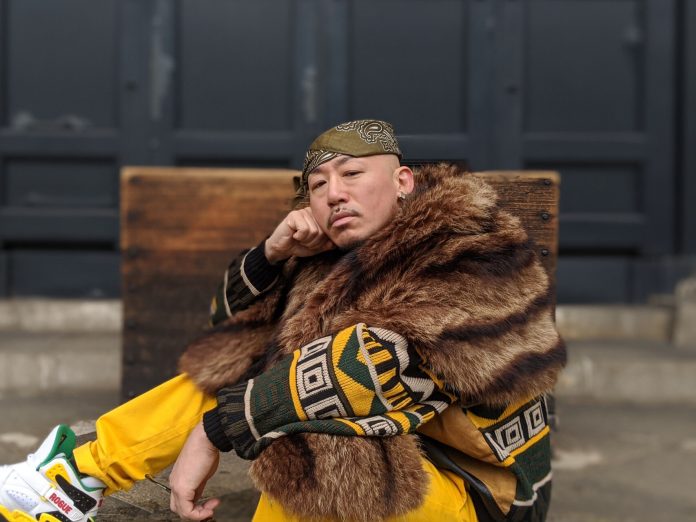
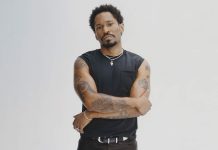
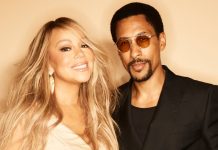
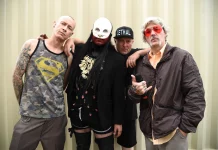
Awesome! Its genuinely remarkable post, I have got much clear idea regarding from this post
There is definately a lot to find out about this subject. I like all the points you made
This is my first time pay a quick visit at here and i am really happy to read everthing at one place
This was beautiful Admin. Thank you for your reflections.
dodb buzz Great information shared.. really enjoyed reading this post thank you author for sharing this post .. appreciated
Its like you read my mind You appear to know so much about this like you wrote the book in it or something I think that you can do with a few pics to drive the message home a little bit but other than that this is fantastic blog A great read Ill certainly be back
Hi my family member I want to say that this post is awesome nice written and come with approximately all significant infos I would like to peer extra posts like this
Üsküdar su kaçağı bulma cihazı Kaçak tespitinde çok başarılılar, fiyatları da oldukça uygun. https://ou812chat.com/read-blog/4391
What i do not realize is in fact how you are no longer actually much more wellfavored than you might be right now Youre very intelligent You recognize thus considerably in relation to this topic made me in my view believe it from numerous numerous angles Its like men and women are not fascinated until it is one thing to do with Lady gaga Your own stuffs excellent All the time handle it up
I have read some excellent stuff here Definitely value bookmarking for revisiting I wonder how much effort you put to make the sort of excellent informative website
I simply could not go away your web site prior to suggesting that I really enjoyed the standard info a person supply on your guests Is going to be back incessantly to investigate crosscheck new posts
Hello Neat post Theres an issue together with your site in internet explorer would check this IE still is the marketplace chief and a large element of other folks will leave out your magnificent writing due to this problem
Its like you read my mind You appear to know a lot about this like you wrote the book in it or something I think that you could do with some pics to drive the message home a little bit but instead of that this is fantastic blog An excellent read I will certainly be back
I do trust all the ideas youve presented in your post They are really convincing and will definitely work Nonetheless the posts are too short for newbies May just you please lengthen them a bit from next time Thank you for the post
Somebody essentially lend a hand to make significantly posts I might state That is the very first time I frequented your web page and up to now I surprised with the research you made to create this particular put up amazing Excellent job
“This post has helped me solve my issue, thanks a ton!”
Keep up the fantastic work! Kalorifer Sobası odun, kömür, pelet gibi yakıtlarla çalışan ve ısıtma işlevi gören bir soba türüdür. Kalorifer Sobası içindeki yakıtın yanmasıyla oluşan ısıyı doğrudan çevresine yayar ve aynı zamanda suyun ısınmasını sağlar.
Ümraniye ekonomik süpürge tamiri Orijinal parça kullanmaları güven verdi. https://wamainuk.com/question/elektrikli-supurge-tamircisi/
FinTech ZoomUs You’re so awesome! I don’t believe I have read a single thing like that before. So great to find someone with some original thoughts on this topic. Really.. thank you for starting this up. This website is something that is needed on the internet, someone with a little originality!
helloI like your writing very so much proportion we keep up a correspondence extra approximately your post on AOL I need an expert in this space to unravel my problem May be that is you Taking a look forward to see you
Thank you for the auspicious writeup It in fact was a amusement account it Look advanced to more added agreeable from you By the way how could we communicate
What i dont understood is in reality how youre now not really a lot more smartlyfavored than you might be now Youre very intelligent You understand therefore significantly in terms of this topic produced me personally believe it from a lot of numerous angles Its like women and men are not interested except it is one thing to accomplish with Woman gaga Your own stuffs outstanding Always care for it up
I have been browsing online more than three hours today yet I never found any interesting article like yours It is pretty worth enough for me In my view if all website owners and bloggers made good content as you did the internet will be a lot more useful than ever before
Thank you for the auspicious writeup It in fact was a amusement account it Look advanced to more added agreeable from you By the way how could we communicate
Back Magazin I just like the helpful information you provide in your articles
Comments are closed.